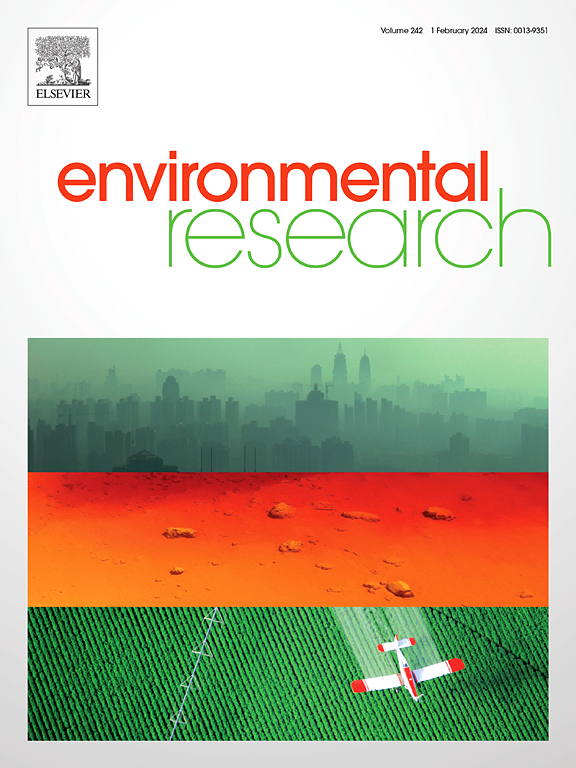Enhanced removal rate of ARGs by inoculating microbial agents during the composting cooling period
IF 7.7
2区 环境科学与生态学
Q1 ENVIRONMENTAL SCIENCES
引用次数: 0
Abstract
Inoculating different microbial agents results in varying levels of antibiotic resistance genes (ARGs) removal, and there remains potential to further enhance removal efficiency. Moreover, the mechanisms driving ARGs removal under different inoculation strategies remain unclear. To improve ARGs removal efficiency, different microbial agents (single Bacillus subtilis and compound microbial agents) and inoculation timings (initial and cooling periods) were investigated, based on the correlations between microbial communities and ARGs. Results indicated that inoculation during the cooling period increased the overall ARGs removal rate to 93.99 %–97.07 %, with Bacillus subtilis achieving the highest removal rate of 97.07 %, exceeding that of inoculation during the initial period (84.19 %–88.8 %). This enhanced removal efficiency was primarily attributed to increased microbial community diversity, the enrichment of certain carbon- and nitrogen-decomposing bacteria, and a more effective reduction in ARG-hosting bacteria, which collectively contributed to improved ARGs removal. This study elucidates the mechanisms by which microbial inoculation at different composting periods enhances ARGs removal, providing guidance for improving ARGs mitigation in compost production.
在堆肥冷却期接种微生物剂提高ARGs的去除率
接种不同的微生物制剂对抗生素耐药基因(ARGs)的去除程度不同,并且仍有进一步提高去除效率的潜力。此外,在不同接种策略下驱动ARGs去除的机制尚不清楚。为了提高ARGs的去除效率,研究了不同微生物剂(单一枯草芽孢杆菌和复合微生物剂)和接种时间(初始和冷却时间)对微生物群落与ARGs的相关性。结果表明,冷却期接种可使ARGs的总去除率达到93.99% ~ 97.07%,其中枯草芽孢杆菌的去除率最高,达到97.07%,超过了冷却期接种的去除率(84.19% ~ 88.8%)。这种提高的去除效率主要归因于微生物群落多样性的增加,某些碳和氮分解细菌的富集,以及arg宿主细菌的更有效减少,这些共同促进了ARGs的去除。本研究阐明了在不同堆肥时期接种微生物提高ARGs去除的机制,为堆肥生产中改善ARGs减排提供指导。
本文章由计算机程序翻译,如有差异,请以英文原文为准。
求助全文
约1分钟内获得全文
求助全文
来源期刊

Environmental Research
环境科学-公共卫生、环境卫生与职业卫生
CiteScore
12.60
自引率
8.40%
发文量
2480
审稿时长
4.7 months
期刊介绍:
The Environmental Research journal presents a broad range of interdisciplinary research, focused on addressing worldwide environmental concerns and featuring innovative findings. Our publication strives to explore relevant anthropogenic issues across various environmental sectors, showcasing practical applications in real-life settings.
 求助内容:
求助内容: 应助结果提醒方式:
应助结果提醒方式:


